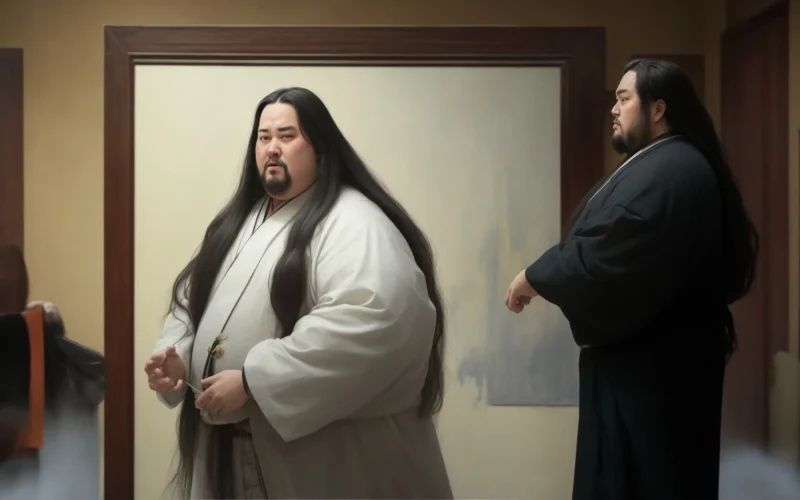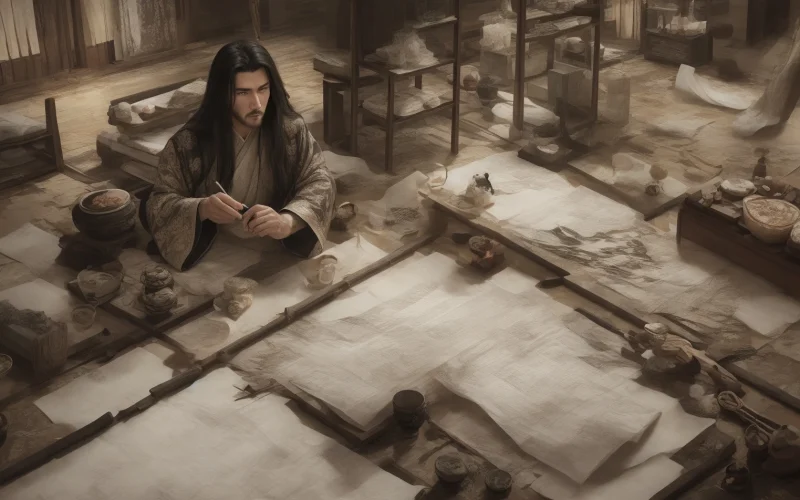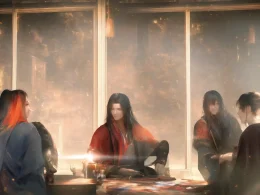Idiom Explanation:
To describe black as white and white as black. It is a metaphor for deliberately distorting facts and confusing right and wrong.
Pronunciation:
颠倒黑白
diān dǎo hēi bái
Origin book:
《九章·怀沙》:变白以为黑兮,倒上以为下。
Origin Story:
During the Warring States period, there was a great patriotic poet named Qu Yuan. He was born in a noble family in the state of Chu. As a young man, he was smart, learned, knowledgeable and good at rhetoric, and had outstanding talents and attainments in politics, diplomacy and literature, so he won the trust of King Huai of Chu and was appointed as a left apprentice, responsible for drafting decrees and receiving guests of vassals.
Qu Yuan's position and achievements made him more and more popular in the state of Chu. However, as he advocated reforming the bad government internally and adopting the strategy of uniting Qi against Qin externally, he offended the interests of the corrupt forces within the nobility and aroused the cynicism of these people. As a result, their representatives, Jin Shang and Zi Lan, colluded with each other and repeatedly slandered King Huai of Chu, maliciously slandering and framing Qu Yuan. As time went by, King Huai became distant from Qu Yuan.
In 313 B.C., King Huaiwen of Qin sent Zhang Yi to Chu and told him that Qin was willing to cede 600 miles of land around Shang Yu to Chu as long as Chu broke off diplomatic relations with Qi. Qu Yuan thought it was a trick and advised King Huai not to fall for it. However, King Huai not only refused to listen to him, but also banished Qu Yuan, who was loyal to his country, to the north of the Han River. After Chu and Qi broke off diplomatic relations, Qin immediately changed its mind and reneged on the deal, saying that the land ceded was not six hundred miles but six miles, and King Huai resented Qin's broken promise, recalled Qu Yuan and sent troops to attack Qin, which resulted in a disastrous defeat and serious losses. Later, the king of Qin took the initiative to make peace and asked King Huai to meet him in Qin. King Huai went there and was detained upon entering Wuguan, and was imprisoned for three years.
After King Huai's son, King Xiang, took the throne, he became even more confused and obedient to Jin Shang and Zi Lan, and further succumbed to Qin's pressure. Soon after, he listened to slander and sent Qu Yuan into exile in the more distant region of Xiang. In 278 B.C., Qin general Bai Qi led an army to break through Ying and burned the tombs of the previous kings of Chu, causing countless people to leave their homes and flee. After hearing the news in Xiang Shui, Qu Yuan felt infinite sorrow, but he himself was wronged and had no way to serve his country, so he could only express his loyalty and grief in his poems. In the famous "Nine Chapters - Huaisha", he wrote these two lines: "Turning white into black, reversing up into down." He made a furious lashing and accusation against those treacherous villains who wantonly perverted black and white and buried the state of Chu. Soon after writing his last poem, Qu Yuan jumped into the Miluo River and sank himself to his death.
Similar Idioms:
- 指鹿为马












